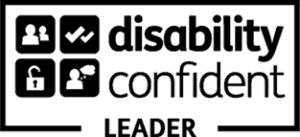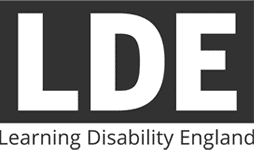Katy Evans – Changing Our Lives Associate
From the absurd of picking up my dog’s shit to the offensive of having a boyfriend – I’ve been called inspirational for almost anything. At Changing Our Lives, we champion everyone’s right to live an ordinary life and we don’t view anyone as extraordinary for doing this. When it comes to disability, this outlook seems to be the exception.
Being described as ‘inspirational’ is thought to be a positive compliment but for me, as a disabled person, it has little meaning as it’s been attached to me my whole life even though the majority of the time I was doing nothing extraordinary other than living. The word has become a source of frustration because it’s a veiled way of having such low expectations of disabled people, that we are congratulated for getting out of bed in the morning. In any media reporting about disability there’s a high probability you’ll see the word ‘inspirational’, more so than any other section of society. In fact, whilst watching the 2012 Paralympics with my friend we played a drinking game where we had a shot every time the word inspirational was mentioned – needless to say it didn’t take us long to get tipsy!
Why is inspirational the go-to descriptor for disabled people? Is it that disabled people are more amazing than everyone else or is there a displacement happening?
When I watched Stella Young’s Ted Talk a few years ago, I felt justified for my feelings of annoyance and frustration when she coined the phrase ‘inspiration porn’ to describe the phenomenon of congratulating disabled people for living their ordinary, everyday life. She described inspiration porn as “objectifying one group of people for the benefit of another group of people. The purpose of images is to inspire and motivate you so we look at them and think well however bad I think my life is, it could be worse, I could be that person”.
Although the declaration of inspiration comes from a well-meaning place, in many ways this is inaccurate and even harmful for disabled people. It risks a process of ‘othering’ whereby disabled people are cast so far from the realm of everyday human experience that it dehumanises them for the benefit of non-disabled people to make them feel good.
Inspiration porn largely individualises the struggles of the disabled person and celebrates their triumph to overcome their adversity. This cites the person’s difficulty as stemming from their impairment and implies that changing their attitude will lead to a better outcome for them. One of the issues with this is it gets society off the hook – if all disabled people need is a positive attitude, people don’t have to acknowledge the multiple systemic, environmental and attitudinal barriers which make disabled people’s lives difficult, usually far beyond the impact of their impairment. Having a positive attitude will never make a ramp materialise when I am stuck on a train or produce documents in Easy Read format so people with learning disabilities can understand how a new law applies to them and their rights.
Inspiration porn presents disabled people as smiling, positive people who bravely get on with their life. The reality is far different – disabled or not, no one is happy all the time and to portray that shames people for expressing their struggles. Negotiating life with the challenges that arise from impairment and disability can be an exhausting and frustrating experience. Therefore, disabled life can be extremely difficult sometimes and people should have space to express this without being faced with messages like “if they can do it, you can too” or “she’s always smiling and doesn’t let her disability get her down”, which immediately silences and shames any negative experiences. Not only does this pit disabled people against each other but it also fails to acknowledge the many nuances which are inherent in everybody which makes comparison impossible. Being born disabled in a middle-class family is likely to be a very different experience to that of a child in a single parent family on a very low income.
Around prom season there are often pictures congratulating a non-disabled person for asking a disabled peer to prom, as if by doing so they have made a heroic sacrifice which ought to be celebrated. (https://images.app.goo.gl/Kkw3JJsMBysHAKR5A) What is this saying? That without the kindness of this person the disabled person would have never been asked on a date? This, in turn, feeds into the asexuality myths around disability. When disabled people are being celebrated for remembering their own name it leaves little room to be respected for genuine achievement. My colleague, Siraaj, wrote a blog about his experience of being treated differently to his non-disabled colleagues by external partners. He experiences people making assumptions about his capabilities through overly praising his ability to do his job and never considering doing the same to his colleagues.
The concept of inspiration removes people from the realms of ordinary and places them on an unreachable pedestal. I have often been congratulated for walking my dog whilst other dog walkers walk their dog. People don’t seem to see the irony that whilst I am on wheels rather than legs, I am doing exactly the same as them. If I called them inspirational for walking their dog or picking up their dog’s shit they would likely be bemused and feel they were doing nothing extraordinary as demonstrated by comedian Lawrence Clark: https://youtu.be/fx9fAEJeI0E.
The inaccurate assumption being disabled is the worst possible outcome, leads many people to tell disabled people they would rather die than be like them. Quotes like “what’s your excuse?” under a picture of a disabled child only reinforces the message disability is the worst thing that can happen to a person and if you are not disabled you have nothing to complain about. There are many challenges people face, disability is just one of them, but it does not automatically Top Trump everything else and should not be used to shame those who are finding life difficult.
Like Stella Young, I am hugely inspired by the disabled people I know and the ‘hacks’ they have taught me, the comradery to fight systems not designed for us and the tenacity to keep proving who we really are to a world all too ready to label us through their assumptions.
When you next want to tell a disabled person they are inspirational consider if you would say the same to a non-disabled person in the same context. If you are recognising the person had to work much harder to do something, think about why this may be and the ways society could be improved to be more inclusive so the onus is no longer on the individual to overcome adversity.
What will you do after reading this to challenge the mass objectification of disabled people?





